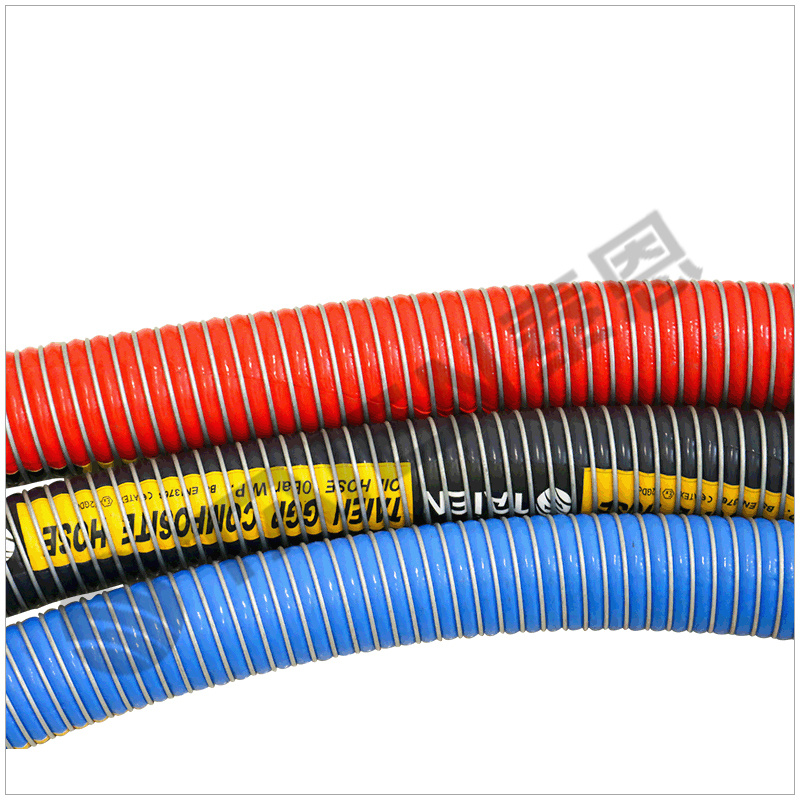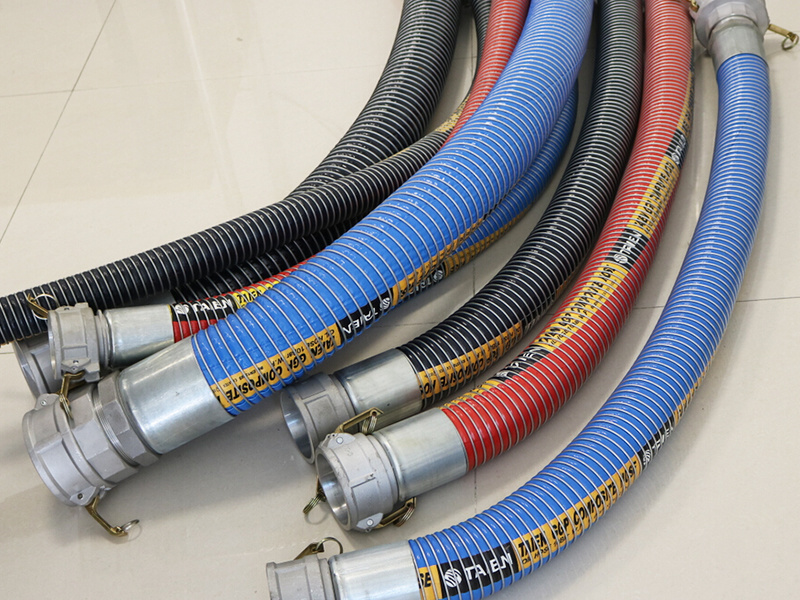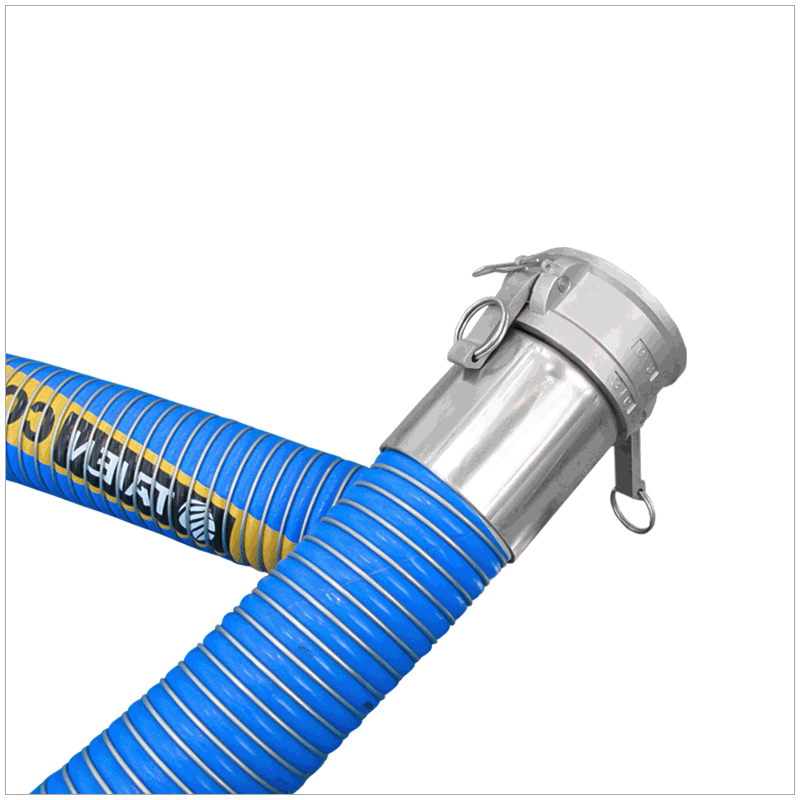Teflon Hoses: The Unsung Heroes of Pneumatic Tools
Release time:
2025-04-23
Author:
Source:
Abstract
Teflon Hoses: The Unsung Heroes of Pneumatic Tools
Table of Contents
Introduction to Teflon Hoses
What Are Teflon Hoses?
Key Properties of Teflon Hoses in Pneumatic Applications
Advantages of Using Teflon Hoses for Pneumatic Tools
Common Applications of Teflon Hoses in Pneumatic Systems
Installation and Maintenance Tips for Teflon Hoses
Choosing the Right Teflon Ho
Teflon Hoses: The Unsung Heroes of Pneumatic Tools
Table of Contents
- Introduction to Teflon Hoses
- What Are Teflon Hoses?
- Key Properties of Teflon Hoses in Pneumatic Applications
- Advantages of Using Teflon Hoses for Pneumatic Tools
- Common Applications of Teflon Hoses in Pneumatic Systems
- Installation and Maintenance Tips for Teflon Hoses
- Choosing the Right Teflon Hose for Your Needs
- The Future of Teflon Hoses in Pneumatic Tools
- Conclusion
- Frequently Asked Questions (FAQs)
Introduction to Teflon Hoses
In the realm of **pneumatic tools**, certain components are often overlooked despite their critical importance. Among these, **Teflon hoses** have emerged as unsung heroes. Known for their versatility and durability, Teflon hoses are essential in a variety of pneumatic applications. Understanding their properties and advantages can help professionals make informed decisions when selecting components for their pneumatic systems. In this article, we will delve into the essential characteristics of Teflon hoses, their applications, and their significance in enhancing the performance of pneumatic tools.
What Are Teflon Hoses?
Teflon hoses are made from **polytetrafluoroethylene** (PTFE), a synthetic fluoropolymer that boasts a wide range of beneficial properties. These hoses are designed to handle various fluids, including air, gases, and chemicals, making them an excellent choice for pneumatic systems. The unique molecular structure of Teflon grants it properties like resistance to high temperatures, non-reactivity with most chemicals, and low friction, which can significantly affect the efficiency of pneumatic tools.
Composition and Manufacturing of Teflon Hoses
The manufacturing process of Teflon hoses involves extrusion and sintering methods, which ensure that the final product meets strict quality standards. The resulting hoses are not only flexible and lightweight but also resistant to abrasion and wear, making them ideal for demanding industrial applications.
Key Properties of Teflon Hoses in Pneumatic Applications
Teflon hoses possess several key properties that contribute to their effectiveness in pneumatic systems:
1. Chemical Resistance
One of the most outstanding features of Teflon hoses is their exceptional resistance to a wide variety of chemicals, acids, and solvents. This characteristic makes them suitable for conveying both aggressive and non-aggressive fluids without the risk of degradation.
2. High Temperature Tolerance
Teflon hoses can withstand extreme temperatures ranging from -320°F to +500°F, ensuring that they maintain their integrity and performance under various operating conditions.
3. Low Friction Coefficient
The low friction coefficient of Teflon allows for smooth and efficient fluid flow, reducing the energy required to operate pneumatic tools and systems.
4. Non-Stick Surface
The non-stick nature of Teflon hoses prevents the accumulation of dirt and contaminants, ensuring clean operation and reducing maintenance needs.
Advantages of Using Teflon Hoses for Pneumatic Tools
Incorporating Teflon hoses into pneumatic systems comes with a multitude of advantages:
1. Enhanced Durability
The robust construction of Teflon hoses ensures a longer service life compared to conventional rubber or plastic hoses, reducing the frequency and cost of replacements.
2. Improved Efficiency
The efficiency of pneumatic tools can be greatly enhanced through the use of Teflon hoses. Their properties minimize energy loss, resulting in more effective operation.
3. Versatility
Teflon hoses can be utilized in a wide range of applications, making them versatile components suitable for various industries, including automotive, pharmaceuticals, and food processing.
4. Safety Features
The chemical resistance and non-reactivity of Teflon hoses contribute to safer operations, as they minimize the risk of leaks or reactions that could lead to hazardous situations.
Common Applications of Teflon Hoses in Pneumatic Systems
Teflon hoses find applications across various industries due to their unique properties:
1. Automotive Industry
In automotive applications, Teflon hoses are used for fuel and oil lines, as well as for brake systems, where their chemical resistance and high-temperature tolerance are crucial.
2. Food and Beverage Processing
Teflon hoses are used in food processing facilities for transferring liquids. Their non-reactive nature ensures that food safety is maintained.
3. Chemical Processing
In environments where aggressive chemicals are handled, Teflon hoses provide a reliable solution for transport without risk of degradation.
4. Pharmaceutical Manufacturing
Pharmaceutical applications benefit from Teflon hoses due to their ability to withstand sterilization processes while maintaining the integrity of the substances being transported.
Installation and Maintenance Tips for Teflon Hoses
Understanding how to properly install and maintain Teflon hoses is essential for maximizing their performance:
1. Proper Installation Techniques
Ensure that the hoses are installed with appropriate fittings to avoid leaks. Use Teflon tape on threads to enhance sealing and prevent fluid escape.
2. Regular Inspections
Conduct routine inspections for signs of wear or damage. Early detection of issues can prevent costly downtime and replacements.
3. Cleaning Recommendations
Maintain the hoses by cleaning them with compatible solvents that won't damage the Teflon surface. Regular cleaning prevents build-up that could affect performance.
Choosing the Right Teflon Hose for Your Needs
Selecting the appropriate Teflon hose is crucial for achieving optimal performance in pneumatic systems:
1. Assessing Pressure and Temperature Ratings
Evaluate the maximum working pressure and temperature of your application to ensure that the Teflon hose can withstand the operational conditions without failure.
2. Considering Length and Flexibility
Choose hose lengths that provide enough reach without excessive slack. Flexibility is also important, especially in applications where movement is required.
3. Evaluating Compatibility with Fluids
Analyze the fluids that will be conveyed through the hose. Ensure that the selected Teflon hose is compatible with the chemical properties of those fluids.
The Future of Teflon Hoses in Pneumatic Tools
As industries continue to evolve, the demand for efficient, durable, and safe components grows. Teflon hoses are expected to play a pivotal role in the future of pneumatic tools:
1. Advancements in Technology
Innovations in Teflon hose manufacturing may lead to even more robust materials and designs, further enhancing performance and durability.
2. Expanding Applications
As industries explore new avenues for automation and efficiency, the versatility of Teflon hoses will likely lead to their adoption in new and emerging applications.
Conclusion
Teflon hoses have proven themselves to be invaluable components in the landscape of pneumatic tools. Their unique properties, including chemical resistance, high-temperature tolerance, and low friction, make them ideal for a wide range of applications. By understanding the advantages of Teflon hoses and how to properly select, install, and maintain them, professionals can significantly enhance the efficiency and safety of pneumatic systems. As technology continues to advance, the role of Teflon hoses in pneumatic applications will undoubtedly grow, securing their status as the unsung heroes of the industry.
Frequently Asked Questions (FAQs)
1. What is the maximum temperature tolerance of Teflon hoses?
Teflon hoses can tolerate temperatures up to 500°F, making them suitable for high-temperature applications.
2. Are Teflon hoses resistant to all chemicals?
While Teflon hoses are highly resistant to a wide range of chemicals, it's important to verify compatibility with specific substances before use.
3. How often should Teflon hoses be replaced?
Regular inspections should be conducted, and hoses should be replaced when signs of wear, damage, or reduced performance are observed.
4. Can Teflon hoses be used in food processing?
Yes, Teflon hoses are suitable for food processing applications due to their non-reactive properties and ability to withstand sterilization methods.
5. What is the best way to clean Teflon hoses?
Use solvents that are compatible with Teflon to clean the hoses, ensuring that no abrasive materials are used that could damage the surface. Regular cleaning prevents contamination and maintains performance.
Recommended Reading













